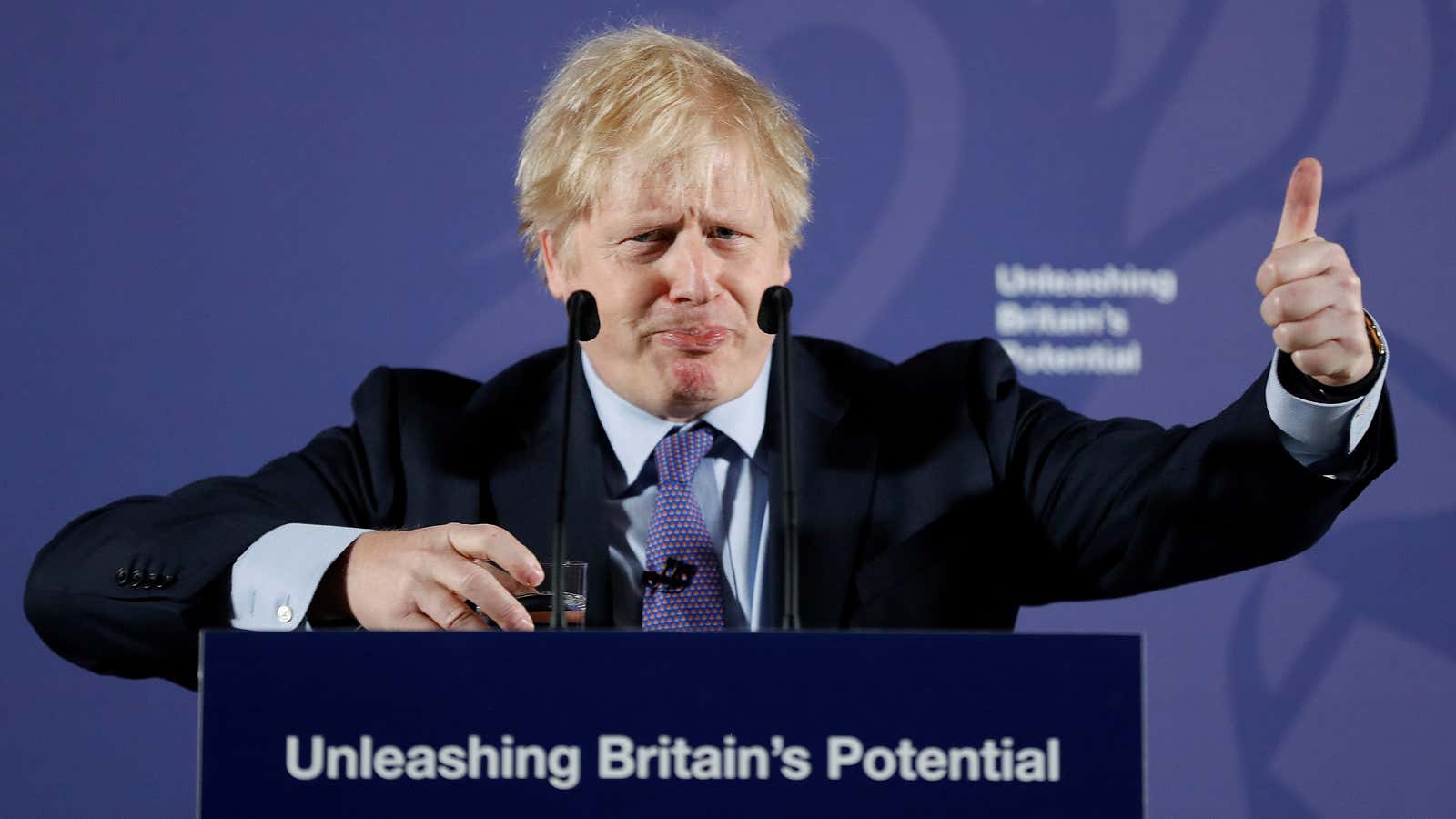During the 40 years or so when Britain was firmly entrenched in the EU, many foreign financial companies, including world-leading giants from Wall Street, made London their European headquarters because it gave them access to the European bloc’s single market. After Brexit, there’s a pathway for banks like JPMorgan to continue serving their EU clients from London, but recent history shows that it won’t be free of obstacles.
Keeping that access may well depend on how closely British rules and regulations mirror those on the continent—which policy makers call “equivalence.” But the European Commission can cut access to its market unilaterally at any time, such as when there’s a political disagreement. That means there’s a growing risk for international banks based in London that the breakup never really ends, and that haggling between the two sides becomes a permanent feature.
The UK’s relationship with the EU is frozen for the rest of 2020, as leaders try to negotiate the final divorce by the end of the year, and bankers in London are mindful of Switzerland’s recent confrontation with the EU. During a spat over treaties last summer, the bloc’s officials allowed one of these equivalence agreements for equity trading to lapse, potentially barring investors in the EU from trading on Switzerland’s exchanges. The economic implications turned out to be small—trading remained smooth and increased in Switzerland— but it showed that the EU is willing to use financial services agreements for leverage.
“The fundamental problem—whatever access the UK ends up with depends on unilateral, revocable EU decisions on equivalence—does resemble the Swiss case a lot,” said Carsten Nickel, managing director at Teneo. The Swiss example also suggests that governance will be a key issue in the unfolding debates, Nickel said. If the role of the European courts becomes an obstacle, for example, the EU could try to impose its will by withholding equivalence status for Britain’s financial companies.
William Russell, the Lord Mayor of the City of London, acknowledged in an interview that there’s a chance that Brexit ends up being more of a journey than a destination. Even so, the former Merrill Lynch banker said it’s hard to imagine the UK’s deep markets for the likes of foreign exchange, stocks, and derivatives being undermined. “I look at the liquidity pool that we have here and I can’t see it going anywhere else,” Russell said in an interview. “That to me means, from the EU’s perspective and our perspective, we need each other.”
Experts have been watching closely for signs that London is losing its edge as financial hub. While a recent survey put New York ahead of London as the world’s preeminent financial center, Brexit has been far from catastrophic for the City at this point.
The country’s promising fintech sector is still burning bright, with funding for financial technology startups increasing 38% last year to $4.9 billion, according to industry group Innovate Finance. More than 1 million people work in finance in the UK, and dire forecasts for Brexit-induced losses have ranged from 30,000 or even more. Russell says the losses amount to around 2,000 so far.
That could yet change, however. Executives have been opening offices in the EU to make sure they maintain access to the bloc no matter what happens in negotiations. But it’s a reasonable bet that they have moved a minimum of personnel for now, and are prepared to send many more employees to the likes of Dublin, Paris, and Frankfurt if talks between Britain and the EU break down, and equivalence is considered to be at risk.
The Lord Mayor of the City of London—the capital’s historical financial district—emphasized that Britain still has its old advantages, such as an ideal timezone for global operations, a widely-recognized common law system, and the English language. But that doesn’t mean the financial sector, which accounts for about 7% of the economy, won’t be hard hit if there isn’t an adequate agreement.
“We would be naïve to think that suddenly, if it doesn’t pan out the way we want it to pan out by December, that businesses aren’t going to move more people,” Russell said. “They may easily happen.”
